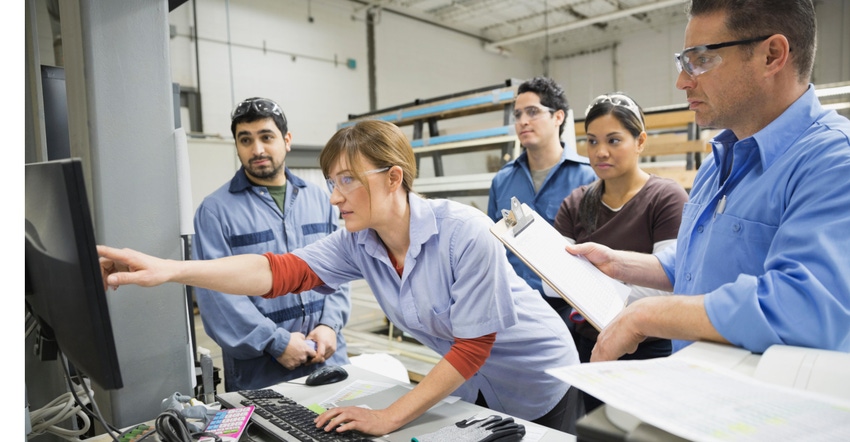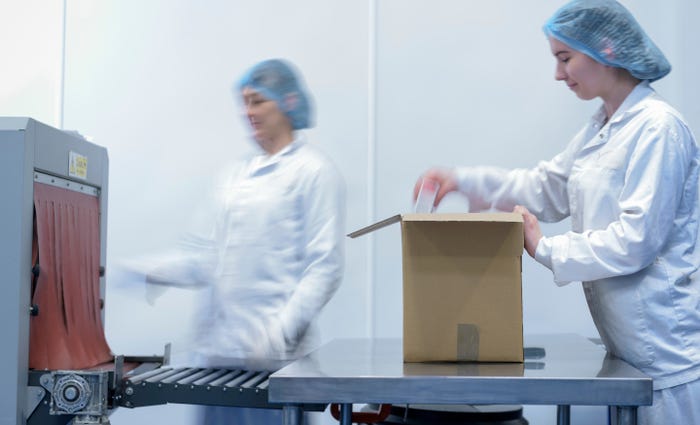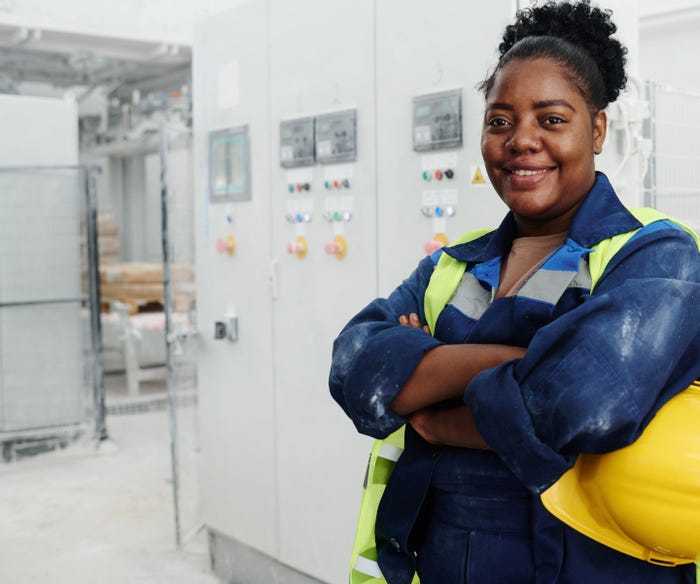How to find and persuade under-represented people — including today’s youth! — that packaging engineering and production careers can help them achieve their dreams.

“What do you want to be when you grow up?” It’s a common question we’ve all been asked at some point in our lives. I remember being asked in kindergarten and a few times during my high school career. At first, I wanted to be a veterinarian because I loved animals. As I got older, I tested better in English than I did in math and science, so I was always encouraged (more like pressured) into pursuing some sort of teaching or college professor position. Boring!
I didn’t know engineering was an option, nor did I understand what it actually was. Anytime my mom would suggest engineering as a possible career pathway for me, I’d cringe due to my inability to do simple math without my fingers while sitting behind a desk for eight hours or more. As far as I was concerned, engineering was boring, uncreative, and too technical for my English skills.
It wasn’t until after I started working for a trade publication that focused on product design and development that I realized I was misled and misinformed about the vast opportunities that existed within engineering. And to be frank, I’m still a little annoyed about it.
Even today, most people don’t know what engineering is or the type of career pathways available. Kids are expected and sometimes pressured into figuring out their whole life before or immediately after graduating high school without understanding the options they have to select from. So, what needs to change to educate today’s youth and the communities they live properly in about what engineering is and the potential value it could provide them?

Engineers face obstacles.
A few obstacles contribute to the labor gaps within packaging engineering and production that we need to overcome if we want more of today’s youth to think about the field as a possible profession:
• Exposure and lack of awareness.
• Lack of representation.
• Lack of education and career misguidance.
• Disconnect between generations.
Exposure and lack of awareness.
As mentioned above, not many people outside of packaging engineering and production know what it is and its opportunities. We must start exposing kids to the possibilities way before high school and bring awareness to the communities they live in about what a career in modern-day packaging engineering and production entails. How does a person pursue something they don’t know exists in the first place?

Lack of representation.
Engineering has been a male-dominated industry for decades. In 2019, men made up 75.79% of packaging engineers, while women made up 24.21%. A deeper dive shows that 68.7% of packaging engineers are white, 15.0% are Asian, 10.0% are Hispanic or Latinx, 4.2% are black, and 0.3% are American Indian and Alaska natives.
If under-represented people can’t see themselves within specific career pathways, they will continue to not apply to those opportunities and look elsewhere. Once we start bringing awareness to packaging engineering and production jobs, we must encourage communities to learn more about them and pursue them as careers.
Lack of education and career misguidance.
According to a study conducted by the New York Federal Reserve Bank, only 27% of people use their degrees. Many students coming out of college aren’t quite sure which direction to go or how to obtain a career related to their field of study.
In high school, students who aren’t as good at math and science (like me) may be encouraged to get into a field nonrelated to their passions, like an English teacher. There is a disconnect between real-life experiences in packaging engineering and production and what is taught in certain educational institutions.
There also is a lack of education among career coaches and student counselors surrounding specific options, so when someone approaches them for guidance, they do not know how to speak to what’s available in packaging engineering and production.
Disconnect between generations.
The rapid advancements in technology are creating a disconnect between older and younger generations within engineering and manufacturing. The younger generations have different needs and interests from the older ones and learn and communicate differently. This divide may discourage younger generations from learning and pursuing opportunities within engineering and production.
What needs to change?
There are several things that you can do to find and persuade under-represented people — including today’s youth — for your engineering packaging and production jobs:
Facility tours and community outreach.
First, be more proactive. Schedule and promote facility tours for community members so they can learn more about the products and services that you are creating. Pick employees that represent the community members (because representation matters) and are friendly and outgoing so they can keep the visitors engaged.
During the tour:
• Share the “why” of your company and what makes you unique.
• Show them how the technology works.
• Provide them with something they can touch and/or interact with and possibly take home with them.
• Allow them to talk to other employees and ask questions about their roles.
• Give them contact information for potential mentors.
• Connect what you do in your facility with something they can relate to.
• Distribute your contact information so they can reach out to you anytime.
• Collect their contact information and follow up with them for other events.
In addition to hosting facility tours, participate in other community events, such as career fares, community parades, 5K fundraising runs, manufacturing day events, and volunteering opportunities.
Building trusting relationships with your community will turn them into loyal brand advocates and encourage them to apply for available positions at your business. It also allows you to raise awareness about packaging engineering and production to younger generations and underrepresented groups.
Partnerships with educational institutions.
Every community is different, and some communities won’t have specific resources to support vo-tech programs. Think about ways to partner with educational institutions — elementary schools, middle schools, high schools, community colleges, and universities — to help support engineering curricula, internships, and apprenticeships. Ask yourself:
• What sort of materials do they need that you can donate?
• What type of training do the teachers require that you can provide?
• How are student counselors talking about engineering, and what can you add to the dialogue?
• Can you volunteer your time to teach a class or conduct a virtual presentation?
• What sort of funding do they need for grants or scholarships?
Sponsorships and mentorships.
Finally, look into what sponsorships or mentorships are available for you to participate in. FIRST robotics is a great way to expose the next generation to engineering, and it teaches them about teamwork, collaboration, problem-solving, mathematics, business, fundraising, and science.
SkillsUSA is another partnership of students, teachers, and industry working together to ensure America has a skilled workforce. They hold various events and competitions that showcase the top-skilled individuals in the nation.
Becoming a sponsor or mentor can inspire the next generation to consider packaging engineering and production because you show the bigger purpose behind each project and connect them to real-world issues to which they can engineer the solutions.

We need to be more proactive when finding potential candidates for available engineering packaging and production career pathways. We have to go where they are, and once we find them, we have to do a better job exposing them to the opportunities in global change, renewable energy, big data, space exploration, quantum computing, and electric cars. If the next generation continues to believe that engineering is boring, dull, and uncreative, we will continue to see an increase in the skills gap plaguing us all around the world.
About the Author(s)
You May Also Like


